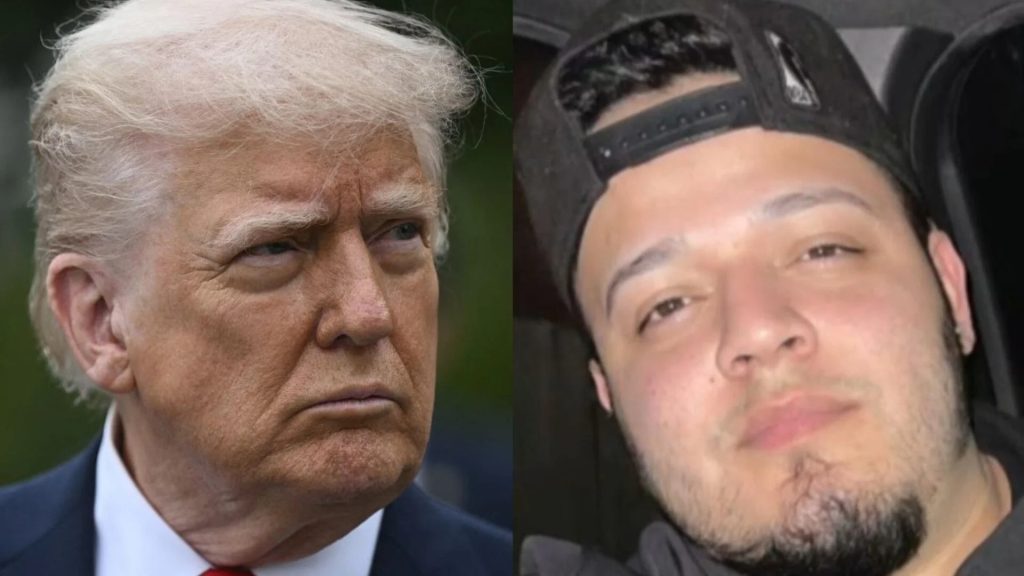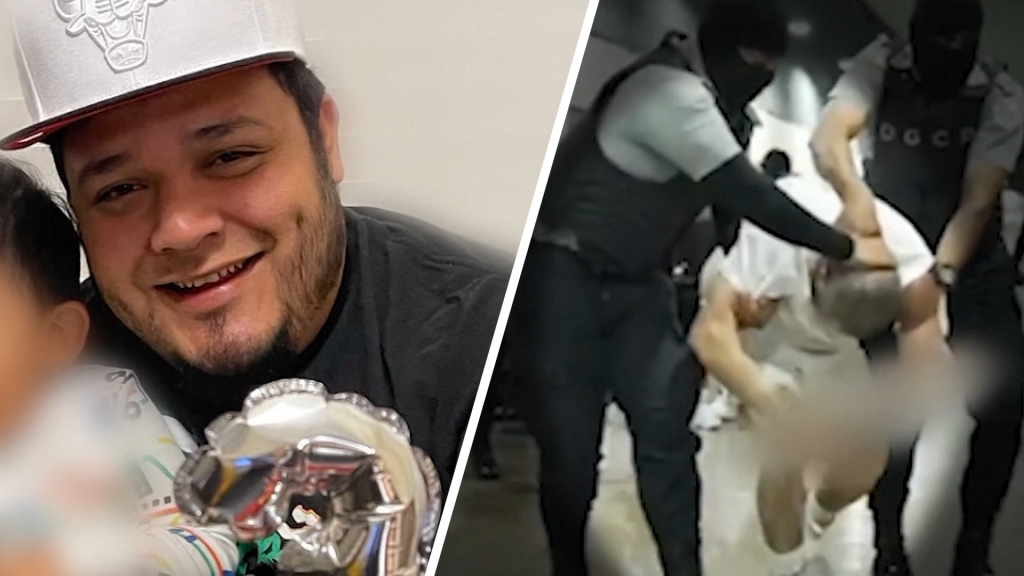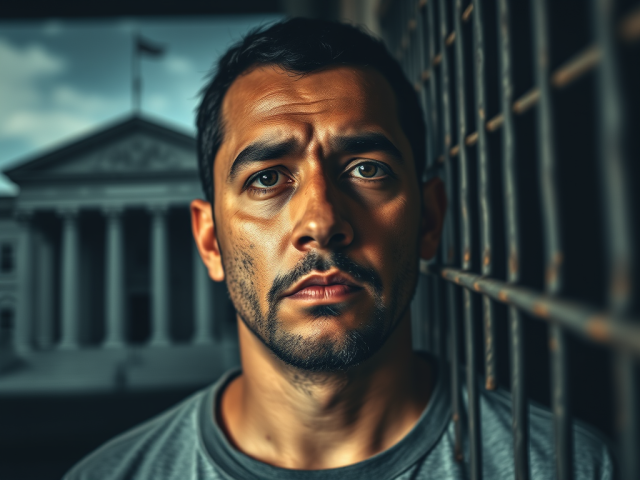Kilmar Abrego Garcia Imagine being ripped away from your family and sent to one of the world’s most notorious prisons — all because of a government mistake.
That’s what happened to Kilmar Abrego Garcia, a 29-year-old Salvadoran man who had been living a quiet life in Maryland. Despite a court order blocking his removal due to fear of persecution, he was mistakenly deported to El Salvador in March 2025. Now, he’s back in the U.S., but not for a reunion — he’s here to face serious federal smuggling charges.
This case isn’t just about one man’s legal troubles — it’s about immigration errors, political pressure, international cooperation, and the broader questions surrounding due process and civil rights in the U.S. legal system.

Who is Kilmar Abrego Garcia?
Background and Life in the U.S.
Kilmar Abrego Garcia had been living in Maryland with his wife and children, building a life like so many immigrants in America. He had reportedly been in the U.S. for several years and was involved in community life, working various jobs to support his family.
Legal Status and Court Orders
In 2019, a U.S. court issued an order blocking his deportation due to credible fears that he would be persecuted if returned to El Salvador. This protection is often granted under asylum or withholding of removal provisions, recognizing that returning someone to a dangerous environment could be a violation of international human rights standards.

The Mistaken Deportation
What Went Wrong in March?
In March 2025, despite the court order, U.S. immigration authorities deported Abrego Garcia to El Salvador. Officials have yet to provide a clear explanation, but early reports suggest bureaucratic oversight, miscommunication between federal agencies, or a rushed procedural error.
Deportation Despite Legal Protections
This case reveals the fragility of immigration protections. If someone with a legal order blocking deportation can still be forcibly removed, what does that say about the system’s integrity?
Life in El Salvador’s CECOT Prison
Upon arrival, Abrego Garcia was sent to CECOT (Terrorism Confinement Center) — El Salvador’s mega-prison built for gang members. This facility, known for harsh conditions and mass incarceration, became a nightmare for someone who was never supposed to be deported in the first place.
Smuggling Charges and the Indictment
What the Grand Jury Alleges
A federal grand jury in Tennessee has indicted Abrego Garcia on two counts related to human smuggling. Authorities claim he played a major role in transporting undocumented migrants across the U.S., dating back nearly a decade.
Scope of the Smuggling Operation
According to the indictment, Garcia was involved in moving thousands of migrants, often from Texas to other states, in exchange for money. These operations allegedly involved over 100 trips and included children and suspected MS-13 gang members.
Links to MS-13 and Minors
The indictment suggests that some of those transported were linked to MS-13, a notorious gang. However, Garcia’s family strongly denies any criminal ties, calling the allegations a smear campaign. Including minors in the operation further complicates the charges and adds to the potential sentencing severity.
Legal Consequences and Sentencing
If convicted, Garcia faces up to 10 years in prison per transported migrant — potentially resulting in a life sentence. Federal prosecutors are pushing to keep him in custody, citing flight risk and community danger.

The Role of U.S. and Salvadoran Authorities
Cooperation Between Nations
Surprisingly, despite earlier statements from the Trump administration claiming it was impossible to bring Garcia back, U.S. authorities presented an arrest warrant and worked with El Salvador’s president to return him for prosecution.
Arrest Warrant and Legal Maneuvers
Using the warrant, the U.S. was able to secure his extradition — a rare occurrence in such immigration-related cases. This cooperation suggests high-level interest and pressure behind the scenes.
Trump Administration’s Initial Denial
Earlier, the Trump-era immigration team insisted Garcia couldn’t be returned. That stance changed swiftly when political winds shifted and new evidence surfaced — raising questions about whether the original deportation was politically motivated or simply botched.
Legal and Political Fallout
Defense by Simon Sandoval-Moshenberg
Garcia’s lawyer, Simon Sandoval-Moshenberg, has launched a strong defense, insisting his client deserves a fair trial. He accuses the government of violating due process rights, a fundamental protection under the U.S. Constitution.
Claims of Due Process Violations
The wrongful deportation itself could potentially invalidate some parts of the prosecution, depending on how judges interpret the violation of legal protections and court orders.
Resignation of Prosecutor Ben Schrader
In a surprising twist, Ben Schrader, a senior federal prosecutor in Tennessee, resigned over the case. He reportedly believed the charges were politically motivated, further fueling debates over fairness and transparency.
Public Opinion and Political Context
The case has divided public opinion. Some see Garcia as a dangerous smuggler, while others view him as a victim of political scapegoating and government error. The issue taps into deep-rooted divisions over immigration and justice in America.
The Human Side of the Story
Abrego Garcia’s Family in Maryland
His wife and children remain in Maryland, devastated by both the sudden deportation and the ongoing criminal case. They have publicly stated that Garcia is not involved in any gang activity and that he’s being unfairly targeted.
Allegations vs. Reality
Despite serious allegations, there’s a lack of direct evidence tying Garcia to organized crime. Legal experts warn against conflating smuggling with trafficking or gang affiliation — especially without clear proof.
Psychological and Emotional Impact
Being imprisoned in CECOT and then yanked back into a high-profile criminal trial has undoubtedly had a severe mental toll on Garcia. His family, facing uncertainty and public scrutiny, is emotionally exhausted.
Broader Implications for U.S. Immigration Policy
Systemic Failures and Reforms
This incident highlights critical flaws in the immigration system, including miscommunication between agencies, lack of proper case tracking, and flawed deportation protocols. It’s a call for systemic reform.
Precedents and Legal Ramifications
Garcia’s case could set a legal precedent for how mistakenly deported individuals are treated, especially if due process is deemed to have been violated. Lawyers and advocacy groups are watching closely.
Media Attention and Civil Rights Concerns
Civil rights organizations have already flagged the case as a sign of broader issues in immigration enforcement, calling for oversight, transparency, and accountability.
Conclusion
The story of Kilmar Abrego Garcia is about more than just smuggling charges — it’s a cautionary tale about how fragile immigration protections can be, how mistakes in the system can destroy lives, and how politics often overshadows justice. Whether Garcia is guilty or innocent, the system owes him — and the public — a fair, transparent process.
As the trial unfolds, many eyes will remain fixed on this case, not just to determine one man’s fate, but to see what it reveals about America’s immigration system, legal integrity, and political will.
FAQs
1. Why was Kilmar Abrego Garcia mistakenly deported?
He was deported due to an administrative or procedural error, despite a 2019 court order blocking his removal. This mistake occurred during a time of heightened immigration enforcement.
2. What are the specific smuggling charges against him?
Garcia is charged with transporting thousands of undocumented migrants over nearly a decade, allegedly profiting from over 100 trips between Texas and other U.S. states.
3. How did El Salvador cooperate with the U.S.?
El Salvador’s president agreed to return Garcia after U.S. officials presented an arrest warrant, despite previous claims that extradition was not possible.
4. What does this case mean for immigration law?
It highlights systemic flaws in deportation procedures and raises questions about due process, potentially influencing future legal reforms and case law.
5. Is Kilmar Abrego Garcia affiliated with MS-13?
Although the indictment mentions suspected gang members, there is no direct evidence linking Garcia to MS-13. His family strongly denies any such affiliations.







































